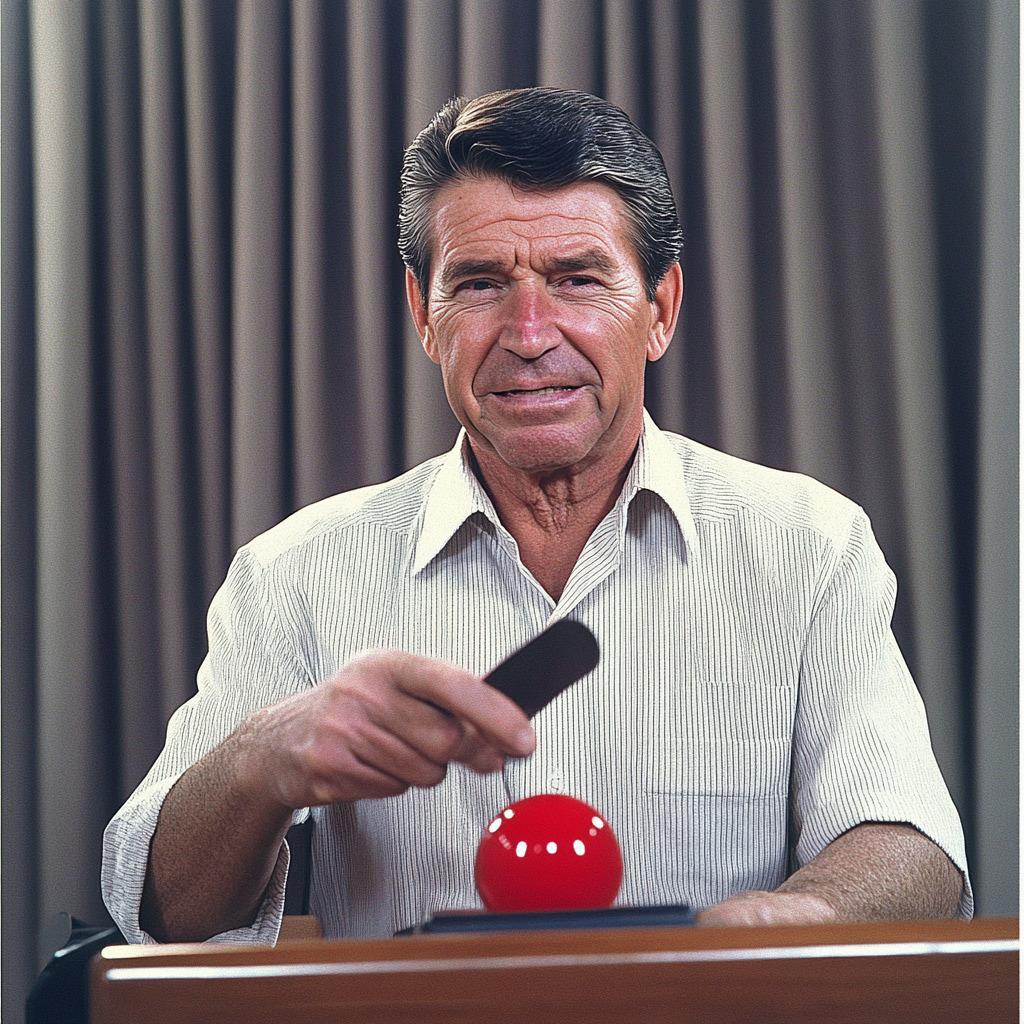Ronald Reagan’s off-the-cuff remark, “We begin bombing in five minutes,” is one of the most notorious examples of how a simple joke can ripple through global politics, particularly during the fraught atmosphere of the Cold War. The comment, made on August 11, 1984, was not meant to be heard by the public, but it quickly became a symbol of the intense nuclear tensions between the United States and the Soviet Union.
In 1984, Reagan was preparing for a radio address as part of his re-election campaign. During a routine sound check, the president decided to make a joke, saying:
“My fellow Americans, I’m pleased to tell you today that I’ve signed legislation that will outlaw Russia forever. We begin bombing in five minutes.”
The comment was a clear attempt at humor, poking fun at the serious and often dire nature of Cold War rhetoric. However, the joke was recorded and leaked to the public, creating a firestorm of controversy.
The 1980s were a particularly tense period in the Cold War. The Soviet Union and the United States were deeply embroiled in an arms race, with both nations stockpiling nuclear weapons and developing new delivery systems that could strike each other in minutes. Reagan himself had escalated this tension through his aggressive rhetoric and military build-up, famously dubbing the USSR an “evil empire” and pushing for the Strategic Defense Initiative, a space-based missile defense system that many saw as a threat to the delicate balance of mutually assured destruction.
In this context, Reagan’s joke was seen by many as reckless and dangerous. While some in the West might have viewed it as a typical example of Reagan’s folksy, informal style, it was a different story on the other side of the Iron Curtain. The Soviet leadership, already wary of Reagan’s policies, took the joke seriously, as did many in the international community.
The global reaction to Reagan’s joke was swift and severe. In the Soviet Union, state media condemned the comment as proof of American aggression and irresponsibility. Many ordinary citizens in the West were also alarmed, fearing that such a flippant remark could exacerbate tensions and bring the world closer to the brink of nuclear war.
The joke also had political ramifications for Reagan at home. Critics accused him of being out of touch with the seriousness of his office, particularly given the potential consequences of a nuclear conflict. However, Reagan’s supporters defended the president, arguing that the comment was clearly a joke and that his tough stance on the Soviet Union was necessary to maintain peace through strength.
Despite the controversy, Reagan went on to win a landslide victory in the 1984 presidential election, suggesting that the American public was either forgiving of the gaffe or more concerned with other issues. However, the incident remained a vivid reminder of the perils of the Cold War and the fine line world leaders had to walk in an era where a single misstep could have catastrophic consequences.
Over the years, Reagan’s “We begin bombing in five minutes” joke has been cited as an example of the risks inherent in the informal communication styles of political leaders, especially in an age of instant media and global communication. The comment also serves as a historical touchstone, illustrating the constant underlying fear of nuclear annihilation that defined much of the 20th century.
Today, the remark is often discussed in the context of Cold War history, serving as a potent reminder of how close the world came, on several occasions, to the unthinkable. It also reflects the complex personality of Ronald Reagan—part hard-nosed Cold Warrior, part genial communicator—who could shift from serious statesman to casual joker in an instant.
In hindsight, the “bombing in five minutes” joke might seem like a minor footnote in the grand narrative of the Cold War, but it encapsulates the ever-present tension and the razor-thin margins for error that characterized U.S.-Soviet relations during that era.
Link: German Version

Leave a Reply